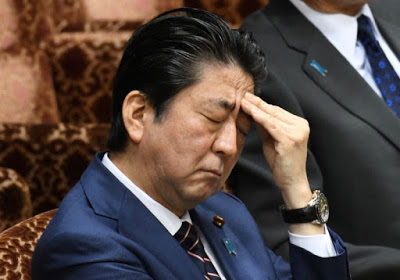
These should be good days for Japan’s Prime Minister Abe. After being punished in local elections, Abe recovered to push back a challenge by his former defense minister and now governor of Tokyo. He reappointed Kuroda at the helm of the Bank of Japan, breaking from a 50-year tradition of one-term BOJ head.
The Japanese economy is enjoying its longest expansion in a couple of decades. The threat of deflation has been arrested, and in February Japan’s core inflation stood at 1.0%, the same as the ECB’s core measure, though it is calculated quite differently.
The US pulled out of the Trans-Pacific Partnership talks. Abe had belatedly seen how TPP could further his own domestic agenda. Although many thought this ended the Obama Administration’s “pivot to Asia,” Trump’s stepped-up efforts to confront North Korea and China offers much for Abe to like.
Still, there has been divergence. The US did not step-up its confrontation until North Korea claimed the ability to strike the US homeland, even though treaties obligate the US to regard on attack on Japan as the same as an attack on it. Japanese officials are concerned that in bilateral talks the US may sacrifice Japan’s interest to secure a deal.
Several countries have been given exemptions, some permanent and some temporary, from US steel and aluminum tariffs. Not Japanese producers. It may be more of a political insult than an economic injury for Japan. While Macron and Merkel, who will visit the US later this week, will seek an exemption for EU members, Japan may pursue a different set of tactics, allowing Abe to focus on security issues when he calls on Trump next week.
The US is the destination of less than 10% of Japan’s steel exports. Asia is home to 805 of Japan’s 38 million tons of steel exports. Rather than push for a country exemption, Japan may be counting on product exemptions. Simply put, more than a third of Japan’s steel exports to the US are specialty products that have no or few domestic alternatives. Without Japan’s steel products, high-grade piping in deep underground oil wells would be disrupted, as would some auto production and rail track. Note too that some Japanese steel producers have long-term contracts with customers, some of which, for example, may be Japanese auto and part makers.













Leave A Comment